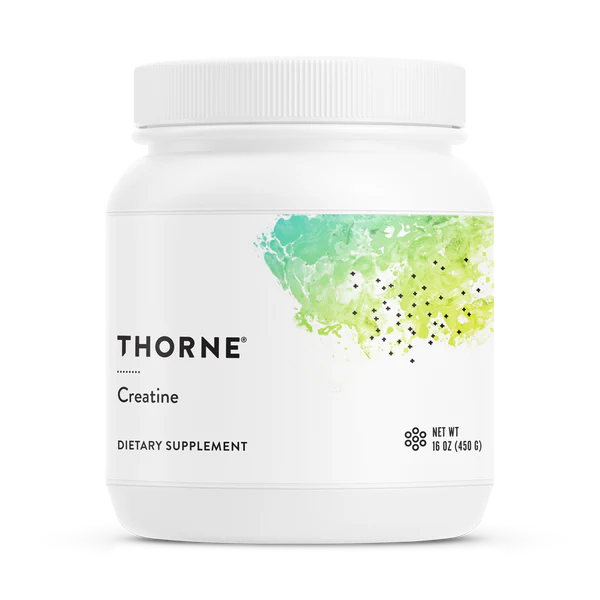As creatine is primarily beneficial for athletic performance, muscle growth, and strength, it has been associated with large, muscular guys. But does creatine exist for women, too? Many people believe that the advantages of creatine supplements are limited to male gym goers or to muscle building and fattening up. The truth, however, is different. Creatine offers numerous health benefits not only for men but also for women, particularly those looking to boost their workouts and overall health. Continue reading to find out how creatine supplements for women are effective and give them the extra boost they need.
What is Creatine?
Creatine produced in the human body can be found in muscle cells in its natural form. It assists your muscles in producing sufficient amounts of energy during high-intensity activities such as sprinting or lifting heavy objects. Generally, the human body converts amino acids gained from red meat or fish into creatine but people may choose to take creatine supplements, especially those who want to get improved outcomes associated with their workouts.
Athletes and fitness enthusiasts are among the top buyers of creatine supplements. In order to improve performance and increase muscle growth, they prefer consuming creatine supplements. This supplementation has been the subject of substantial research and is supported by scientific evidence that demonstrates its usefulness in improving strength, power, and muscle mass, particularly during high-intensity activities like workouts and gym exercises. In addition, creatine supplements are also associated with increased brain function, protection against neurological illnesses, and enhanced recovery from exercise-induced muscle injury. But in order to get a complete understanding of these consequences, additional research is required.
How Does Creatine Work?
Creatine assists in boosting the phosphocreatine reserve of the body which is a necessary part of producing adenosine triphosphate (ATP), the main source of energy for cells. Here is a breakdown of how creatine works:
ATP Production: During high-intensity exercises such as weightlifting or sprinting, the muscle rapidly consumes ATP for energy. When ATP is hydrolyzed into adenosine diphosphate (ADP) and inorganic phosphate (Pi) generates energy, ATP levels decrease. This further limits the performance of muscles.
Phosphocreatine (PCr): This acts as a quickly accessible storage of high-energy phosphate groups. This transfers its phosphate group to ADP to replenish ATP levels when they fall during intense physical activities. This process, catalyzed by the kinase enzyme, preserves ATP levels and supports muscle energy production.
Improved Energy Availability: The more phosphocreatine is available to recover ATP levels during high-intensity workouts after replenishing the human body’s store of creatine through supplementation. It thus allows muscles to sustain high power output over prolonged periods, thus postponing tiredness and improving performance in subsequent rounds of high-intensity activity.
Muscle Growth & Recovery: Creatine supplementation can boost muscle growth and overall well-being besides energy metabolism. This increases ATP availability, which may increase training load and volume, leading to a greater degree of muscle protein synthesis and hypertrophy. In addition, creatine reduces exercise-induced muscular damage and inflammation, thereby aiding the process of recovery between workouts.
Does Creatine Work Differently For Women Compared to Men?
Several studies show that supplementing with creatine can be just as good for women as it is for men. It works quite similarly for both men and women. However, women may get a little extra from creatine supplementation as they naturally have a lower creatine store as compared to men. This enables women’s bodies to respond better to creatine supplementation and gain double benefits.
Creatine supplementation for women can enable building strength, boosting power, and enhancing athletic performance without becoming bulky. Some other research shows that women athletes who use creatine experience considerable increases in both upper and lower body strength. Moreover, they notice a significant decline in their body fat percentage without gaining weight. This debunks a popular myth that creatine often leads to unwanted “bulking” among women.
Another point to consider is that using creatine supplements may give a greater boost in energy and performance for women, especially vegetarians or vegans. This is because the creatine that we get from our diets is mainly derived from animals. Creatine not only benefits women athletes but can also work for non-gym goer women. Further, creatine is associated with many other health benefits in women such as bone loss reduction and increased muscle mass. It also protects against neurological diseases and some heart and cardiovascular problems. Taking creatine on a consistent basis is recommended in order to preserve these effects.
Potential Benefits of Creatine Supplements for Women
Here are some potential benefits of creatine supplements for women:
Enhanced Workout Productiveness
Creatine supplementation is linked with improved exercise performance and increased strength, especially during high-intensity activities. Women may see significant improvements in power output and endurance which leads to more productive workout and training sessions.
Gain in Lean Muscle Mass
The growth of lean muscle mass can be stimulated by combining resistance exercise with creatine intake. This is very vital particularly for females since it helps to fight age-related loss of muscles and also supports general metabolic wellness.
Enhanced Muscle Recovery
Research shows that supplementing with creatine could speed muscle recovery between workouts by refilling energy stores and decreasing inflammation. This results in less muscle soreness and better exercise performance, which means you can train more often.
Improvement in Cognitive Function
Some studies suggest that using creatine supplements can help a person’s mental abilities such as memory, learning, and concentration. However, a few more studies are needed before we know for sure how much creatine has an impact on brain health.
Support for Menstrual Health and Hormonal Balance
During their period, women experience changes in levels of creatine related to mood regulation. The higher level of creatine is linked to decreased intensity of PMS symptoms and improved hormone balance. This could be beneficial not only for the menstrual cycle of women but also for their overall health. Thus creatine supplements for women are effective and beneficial.
Creatine Dosage For Women
The recommended dosage of creatine supplements for women depends on body weight and fitness goals. Typically, women should take 0.1 grams per kilogram of body weight. For women weighing less than 68 kg (150 lbs), a daily dosage of 3-5 grams is ideal. Those between 68 and 82 kg (150 and 180 lbs) should aim for 5-7 grams daily, while women over 82 kg (180 lbs) may require 7-10 grams. For strength and power enhancement, a dosage of 5-10 grams daily is effective. To boost endurance, a daily intake of 3-5 grams is recommended.
However, it is advised to consult with an expert for creatine dosage. Speak with your consultant, he/she will recommend you the right dosage by evaluating your current health conditions, ongoing medications, and goals.
Conclusion
Consumption of creatine offers numerous benefits to women. This may improve their performance during workouts leading to muscle growth and even enhanced cognitive abilities besides balancing the hormones. Therefore, to make sure that they get the best out of creatine as far as their fitness is concerned, women should understand how this compound works, select the right one, and use it correctly. Nevertheless, consulting a doctor before taking any supplements is important for safety reasons since each person’s body has its own way of reacting to different substances.

